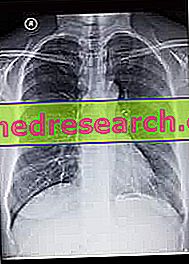
In some rare cases, pregnancy can lead to heart disease, specifically myocardium, called peripartum cardiomyopathy .
By cardiomyopathy is meant any anatomical modification of the heart muscle, which has a negative effect on the functional level, with sometimes very serious consequences on the functioning of the heart. Indeed, those who suffer from cardiomyopathy have a weak and less effective heart in its blood pumping action.
Peripartum cardiomyopathy has all the characteristics of a dilated cardiomyopathy, with the left ventricle dilated and having an extremely thinned muscle wall.
It usually occurs in the last month of pregnancy, but it could also occur after giving birth: the danger exists until the fifth month after the birth of the child.
The women among whom peripartum cardiomyopathy is more widespread are pregnant women in their thirties, which suggests that age can be a decisive risk factor.
Furthermore, according to the doctors, to the list of risk factors, should be added:
- Obesity
- Personal history of heart problems, such as myocarditis, etc.
- Cigarette smoke
- Alcoholism
- African American race
- Bad nutrition
- Multiple pregnancies



